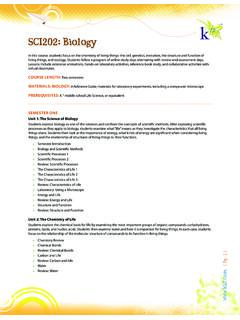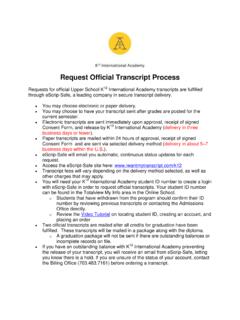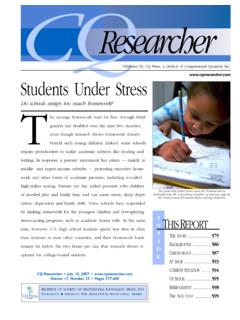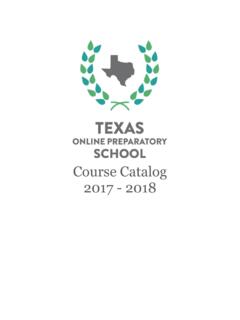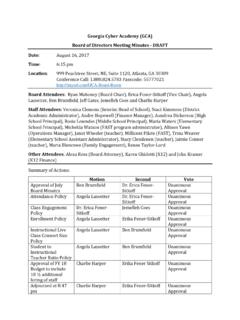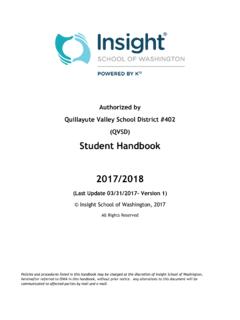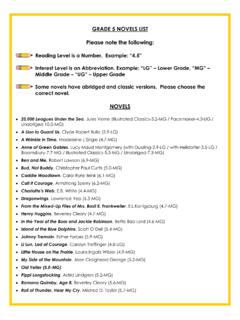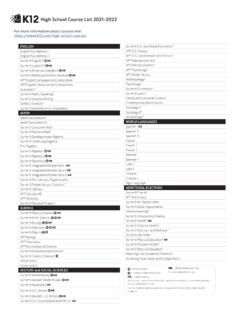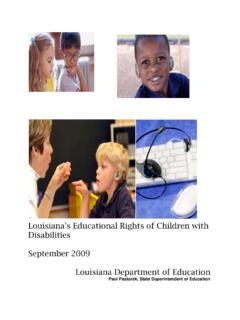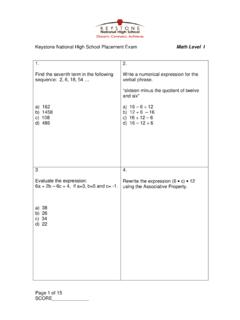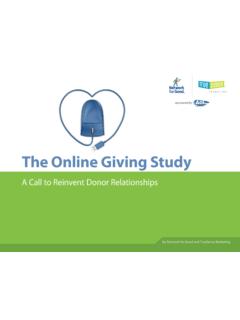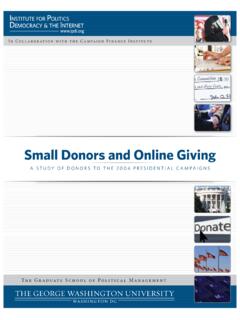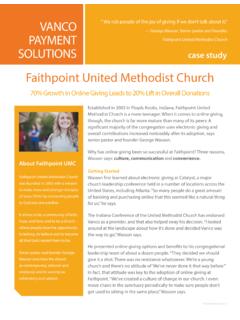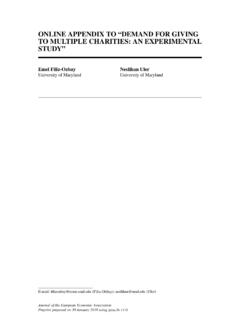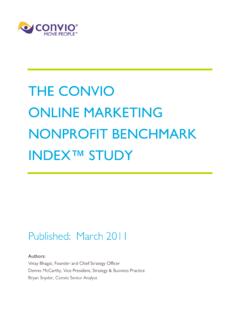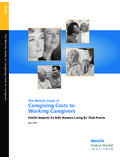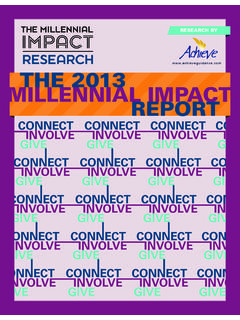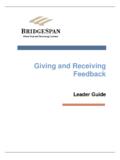Transcription of A Summary of Research on the Effectiveness of K-12 Online ...
1 A Summary of Research on the Effectiveness of K-12 Online Learning Written by Susan Patrick and Allison Powell A Summary of Research on the Effectiveness of K-12 Online Learning Written by Susan Patrick and Allison Powell June 2009. ( ). DIRECT fax email web mail 1934 Old Gallows Road, Suite 350 Vienna, VA 22182-4040. 2 International Association for K-12 Online Learning Table of Contents Executive Summary 3. 1. Department of Education Evaluation of Evidence-Based Practices in Online Learning: a Meta-Analysis and Review of Online Learning Studies 4.
2 2. Literature Review: Effectiveness of Online Teaching and Learning 5. List of Effectiveness Studies 7. Future Research 8. Conclusion 8. A Summary of Research on the Effectiveness of K-12 Online Learning 3. A Summary of Research on the Effectiveness of K-12 Online Learning Executive Summary This memo examines the outcomes and descriptions of the existing studies on K-12 Online learning Effectiveness and provides a literature review. There are a number of rigorous studies that have examined the question, Is Online learning effective?
3 However, there is not a single, large-scale, national study comparing students taking Online courses with traditional students, using control groups in the instructional design. The most in-depth, large-scale study to date is a meta-analysis and review of Online learning studies from the Department of Education. This memo contains three sections: 1) a Summary of the major study by the Department of Education, 2) a brief literature review of Online learning Research and studies, and 3) future Research recommendations. The conclusion of the meta-analysis of these studies is that Online learning offers promising, new models of education that are effective.
4 1. Department of Education Evaluation of Evidence- Based Practices in Online Learning: a Meta-Analysis and Review of Online Learning Studies The Department of Education released a meta-analysis and review of literature of 51 Online learning studies in 2009. The overall results of the meta-analysis found that, on average, students in Online learning conditions performed better than those receiving face-to-face instruction ( Department of Education, 2009, p. ix). The study looked at studies comparing both Online and blended learning environments to the face-to-face learning environment.
5 In the studies focused on blended environments and face-to-face instruction, blended instruction has been more effective, providing a rationale for the effort required to design and implement blended approaches ( Department of Education, 2009, p. xvii). The main findings of the Department of Education study (2009) from the literature review was that: Few rigorous Research studies of the Effectiveness of Online learning for K 12 students have been published. 4 International Association for K-12 Online Learning The meta-analysis of 51 study effects, 44 of which were drawn from Research with older learners, found that: Students who took all or part of their class Online performed better, on average, than those taking the same course through traditional face-to-face instruction.
6 Instruction combining Online and face-to-face elements had a larger advantage relative to purely face-to-face instruction than did purely Online instruction. Studies in which learners in the Online condition spent more time on task than students in the face-to-face condition found a greater benefit for Online learning. Most of the variations in the way in which different studies implemented Online learning did not affect student learning outcomes significantly. The Effectiveness of Online learning approaches appears quite broad across different content and learner types.
7 Effect sizes were larger for studies in which the Online and face-to-face conditions varied in terms of curriculum materials and aspects of instructional approach in addition to the medium of instruction. The narrative review of experimental and quasi-experimental studies contrasting different Online learning practices found that the majority of available studies suggest the following: Blended and purely Online learning conditions implemented within a single study generally result in similar student learning outcomes.
8 Elements such as video or Online quizzes do not appear to influence the amount that students learn in Online classes. Online learning can be enhanced by giving learners control of their interactions with media and prompting learner reflection. Providing guidance for learning for groups of students appears less successful than does using such mechanisms with individual learners (p. xiv xv). 2. Literature Review: Effectiveness of Online Teaching and Learning Following is a brief overview of the Research on Effectiveness of K-12 Online teaching and learning.
9 The primary question addressed in most studies is how students enrolled in computer-mediated, asynchronous, Online teaching and learning courses compares in student achievement outcomes on standardized tests to students taught in a traditional, synchronous, face-to-face setting. From 1989-2004, there were 15 studies published that met strict criteria for internal experimental validity comparing Online courses with conventional courses. Cavanaugh, Gillan, Hess and Blomeyer (2005) published the first meta-analysis of Online education outcomes focused entirely on K-12.
10 Education, The Effects of Distance Education on K-12 Student Outcomes: a Meta-Analysis. The A Summary of Research on the Effectiveness of K-12 Online Learning 5. meta-analysis found that virtual instruction produced results measuring student achievement that were as good or better than traditional face-to-face instruction. In 2003-2006, the Department of Education funded rigorous studies of educational technology and Online learning (including the West Virginia Virtual School evaluation for the Online Spanish course) with control groups in the experimental design, focused on measuring student achievement outcomes.
